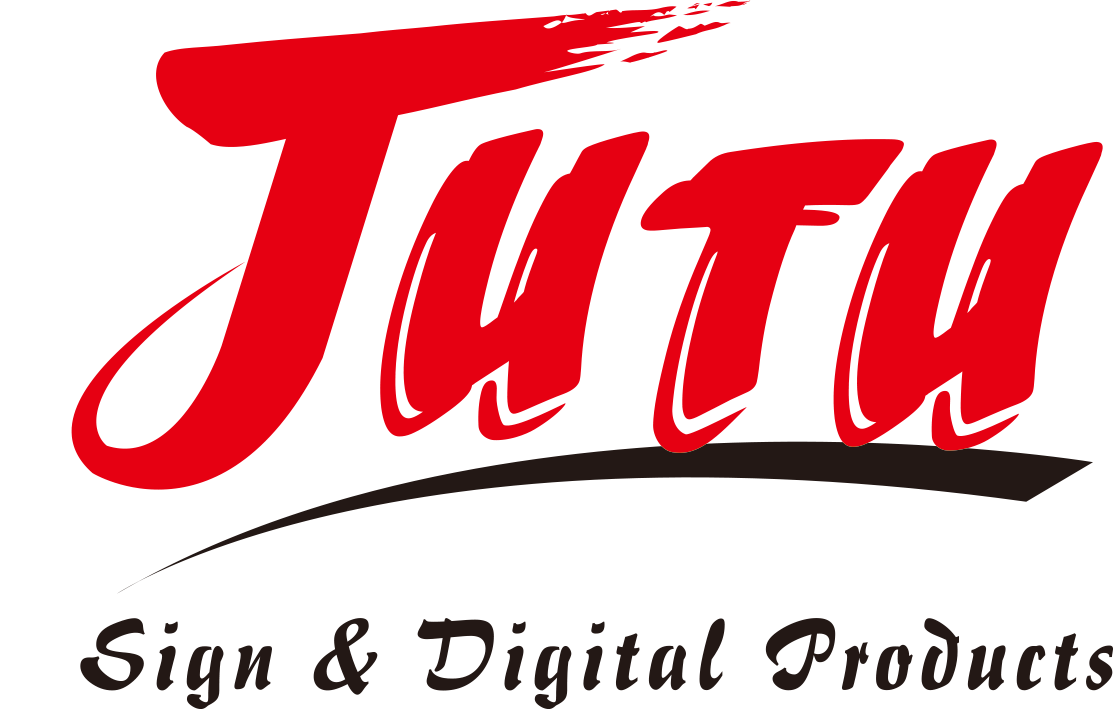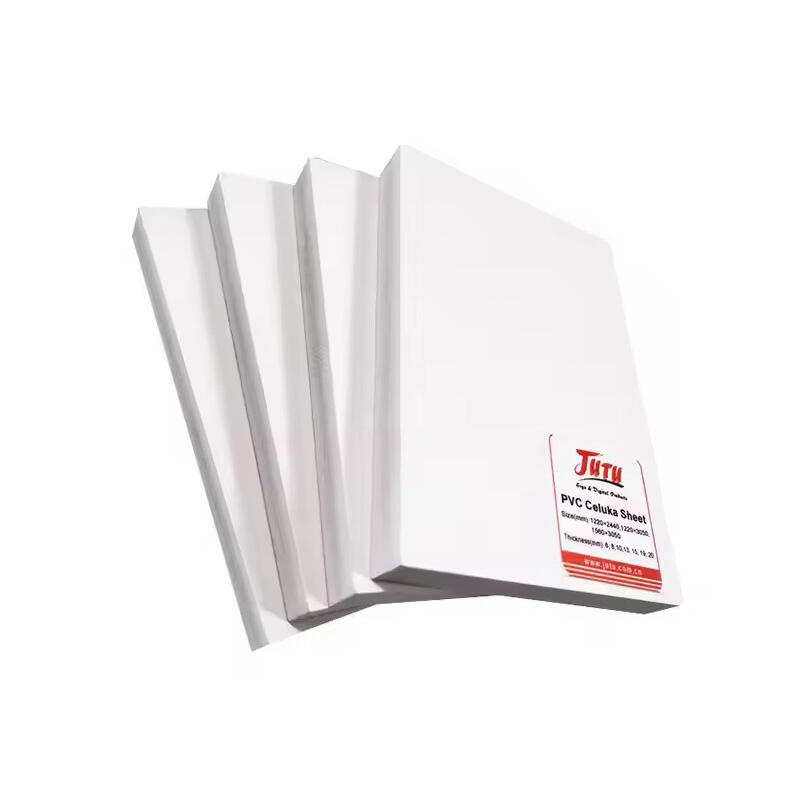PVC Celukaフォームシートの構成について理解する
PVC Celukaフォームシートの構成を探り、その衝撃耐性とさまざまな用途への適合性に注目します。
Celuka押出成形製造プロセス
Celuka押出成形プロセスは、PVCフォームシートに見られる強度と独自の特性を生み出すものです。このプロセスでは、溶融したPVCをダイスを通して押出し、製品に形状を与え、制御された冷却によって緻密な外層とよりスポンジ状の内層が形成されます。この二層構造により、フォームは滑らかな外観を維持しつつ、内部のフォーム密度をコントロールすることが可能になります。これにより、さまざまな用途に適しています。Celukaプロセスは切断エッジ付きのシートを作成でき、特定の作業ニーズに応じてカスタム厚さや長さのシートを製造できます。工業的試験では、この方法が非常に効果的であることが示されています。廃棄物を最小限に抑え、他の製造プロセスと比較して、より信頼性の高いフォームシートを実現するという明確な利点があります。
耐衝撃性を高めるクローズドセル構造
PVCセルカフォームボードの閉鎖セル構造は、素材に非常に高い強度と耐久性を付与します。閉鎖セルとは、各セルが完全に密閉されていることを意味し、これにより水や空気を通さず、シートの外部からの衝撃に対する耐性が向上します。この特性により、建築材料や自動車部品など、衝撃耐性が求められるさまざまな用途に適しています。研究によれば、硬質の閉鎖セルPVCフォームシートは穴が開いても数日間しか水分を保持しないことが示されています。この性質は、素材の寿命を延ばすだけでなく、過酷な環境下での使用可能性も高めます。
主要な物理的特性の内訳
密度、引張強度および断熱特性 PVCセルカスフムシート 多くの用途に最適です。このようなシートは一般的に重量上の不利があり、さらに曲げやすかったり変形しやすかったりするという別の欠点があります。しかし、圧力に耐える十分な引張強度を持ち、温度変化の大きい環境でも良好に機能する断熱特性を備えています。信頼性の高い特性—例えば長寿命、優れた性能、そしてメンテナンスの容易さ—が求められるあらゆる構造用途に広く使用されています。高密度フォームのPVCセルカフォームシートは、可能な限り低密度のPVCシートと多層構造の厚みで製造可能であり、従来のPVCシートの印象を覆すでしょう。PVCセルッカフォームシートは、Shiv Uddyogによって特別に開発された、永遠にユニークな製品です。
実証された耐久性と性能の利点
PVCフォームシートは、さまざまな工業用途において好まれる理由となる、多数の耐久性および性能上の利点を提供します。
過酷な環境下における長期的な構造的完全性
PVC発泡シートは、非常に過酷な環境にも耐えうる耐久性の高い材質により、優れた長期的な構造的完全性を提供します。特殊な素材のため、これらのシートは厚みと強度を保ち続け、時間の経過とともに品質が低下することはありません。たとえば、極端に暑い、寒い、または湿気の多い場所においても、PVC発泡シートへの影響はほとんどありません。これはあらゆる気候条件に耐える堅牢性を持っているためです。特に海岸地域での建設プロジェクトへの応用例は興味深いものです。ここでは水や塩分が豊富に存在しますが、このような状況でもPVC発泡シートはその優れた品質と多様な用途に対する耐久性を示しています。
優れた耐化学性および紫外線による色あせ防止性能
PVCフォームシートは化学薬品に対する耐性に非常に優れており、化学薬品が使用または保管されるすべての用途に適しています。これらの板材は化学腐食から保護する性能を持ち、他の多くの材料が急速に劣化してしまうような環境でも問題なく使用できます。さらに、PVCフォームボードは優れた紫外線(UV)耐性を備えているため、日光による色あせの心配がありません。この特性により、時間の経過とともに生じる色の劣化や表面の侵食が抑制され、素材の外観的美しさや構造的特性の劣化を防ぎます。このような特性を持つPVCフォームシートは、それらを持たない材料よりも長持ちします。繰り返しの研究で明らかになっているのは、内蔵型UV保護機能を備えた製品は著しく長寿命であり、ユーザーの時間とコストを節約できるということです。
精密な用途に適した均一な厚み
均一な厚さ:PVCフォームシートの厚さの均一性は、最高の品質と性能を維持するために極めて重要です。家具や看板業界など、精度が要求される用途では特に厚さの均一性が重要になります。当社のシート加工プロセスにより、厚さに関する最高レベルの精度を実現しており、すべての製品がいたるところにおいて、素晴らしい仕上がり、耐久性があり、バリのない状態であることが保証されています。まさにそうあるべき姿そのものであり、それ以下のものは一切ありません。製造上の正確さを保証する基準を重視するメーカー各社は、自社の製品が厳しい産業規格に適合することを信頼しており、そのため厚さの信頼性を頻繁に重視しています。
セルカPVCフォームシートの産業用途
建築、船舶、自動車、小売などの分野にわたり、PVCセルカフォームシートの多様な用途をご紹介します。
建築用外装材および展示ブース
建築の壁面はPVCセルーカ泡板で ずっと簡単でした これらのパネルは,必要に応じて建物のファサードを支える能力があり,同時に,最も厳しい気候条件でも整合性を維持する,実質的な感覚で美学的に魅力的です. 建築家はFIPA板を内外皮を剥がすために使用しており,その滑らかで塗りやすい表面と他の属性はさまざまなデザインオプションを可能にします. 展示台でも PVC 泡シートは 代用できない価値があります 形に合わせて デザインを合わせる 便利で 組み立てられ 解体することも 簡単です 建築や展示の環境で この技術の出現が プロジェクトの実行時間を短縮させていると 業界仲間から聞きました さらに普及すれば 迅速な実用性と効率性を証明できるでしょう
海洋内装 自動車パネル
PVC Celukaフォームシートは、水分や湿気に対する耐性があるため、マリンインテリアに最適です。船内のキャビン、パーテーション、家具など、濡れた環境(LS)での使用においても、その特性と表面外観を維持します。ボートの他の部分と同様に美しく仕上げることができるとともに、より伝統的な素材の風合いを再現することで、ボート内装の洗練度を高めることも可能です。自動車分野では、強度を損なうことなく軽量化を実現できるとして、これらのフォームシートが広く採用されています。これにより、車両の性能向上にも寄与しています。また、パネルやその他の内装面にPVCフォームシートを使用することで、断熱性や防音性の向上も図れます。業界のレポートによると、こうした物理的利点から、特にコスト効率が求められたり厳しい条件に対応が必要なプロジェクトにおいて、自動車用途でのPVCフォームシートの採用がますます進んでいます。
高頻度通行エリア向け屋内看板ソリューション
耐久性と多用途性により、PVC Celukaフォームシートは人通りの多い小売環境での使用に非常に適しています。物理的および環境的な影響に耐えながらも、清潔でプロフェッショナルな外観を保てる素材であれば、看板制作に使用できます。これらのフォームボードはそのような要件を簡単に満たし、ブランドイメージをしっかり支え、目を引く印刷物を安定して掲載できるプラットフォームを提供します。PVCフォームシートが実現するデザインの柔軟性により、小売業者は魅力的で複雑なディスプレイを作成でき、顧客とのインタラクションを促進し、結果として売上増加につながります。例えば、モール内や屋外など人の往来が多い場所でも、これらのシート材で作られた看板が天候にどれほど強く耐えるかに驚かされるでしょう。この長寿命性により、交換や修理の頻度が減り、長期的なコスト削減も可能です。

品質検証プロトコル
産業用途におけるPVCフォームシートの信頼性を保証する厳格な品質検証プロトコルを紹介します。
材料安定性のための密度試験方法
密度試験は、PVCフォームシートの材料試験方法です。この方法では、材料の密度が耐久性および性能特性にどのように影響するかを考慮します。たとえば、高密度のシートは、過酷な使用条件に適した高い強度と断熱性を提供する場合があります。例えば、ASTM D1622などの業界標準では、生産ロットにおける製品品質の一貫性を維持するために密度測定方法を定めています。これらの仕様により、製造業者は品質管理を微調整でき、注文数量に関わらず、強度に対して支払った分の性能が確実に得られるようになります。
表面欠陥の検査基準
表面欠陥の検査は、PVCフォームシートの製造における品質管理および監視において極めて重要です。これは、機能や外観に影響を与える可能性のある凸凹、変色、筋状の汚れなどの異常をシート上で分析することを意味します。例えば、表面の不規則性がシートの完全性を損ない、特定の用途で早期に故障を引き起こす可能性があります。これらの欠陥を評価するための業界基準が存在し、適切に検査されたシートが顧客満足度と材料性能の向上につながるという主張を裏付けています。製造現場の品質管理データは、これらの検査基準を満たすことで優れた最終製品が得られることを示しています。
産業用認証基準
産業用途において、PVCフォームシートは信頼性を持って使用できるよう、特定の認証を取得している必要があります。ISOやASTM認証などのさまざまな規格は、これらのシートが安全性および品質基準を満たしていることを保証し、製造業者と最終ユーザーの双方に安心を提供します。ISO 9001タイプの認証は、企業が品質マネジメントシステムおよび製品の一貫性への取り組みを重視していることを示しています。さらに、これらの認証への準拠は、顧客に対して材料が安全で信頼でき、規制当局により適切な監督が行われていることを明確に示します。こうした厳格な認証プロセスは、あらゆる産業用途における品質と安全性への取り組みを示しています。
比較材料分析
さまざまな環境での利点を理解するために、PVCセルカフォームシートを他の素材と比較してください。
セルカ vs. 木材:湿気および害虫耐性
湿気に耐えるためには、PVC Celukaフォームシートは木材に対して明確な利点があります。PVC Celukaボードは耐湿性に優れており、吸水率はわずか0.08%であり、湿気の多い場所や山岳地域での使用に適しています。対照的に、木材は長期間湿気にさらされると膨張、反り、腐朽を起こす可能性があります。材質選定はまた、害虫に対する耐性にも依存します(Duelli 1987)。PVCは木材のようにシロアリなどの害虫を引き寄せることはありません。これらの主な利点が、業界の多くの専門家が屋外構造物やマリンプロジェクトにPVCフォームシートを選ぶ理由です。
競合プラスチックシートとの性能比較
PVCフォームシートは他のプラスチックシートと比べて固体で、化学的に分解されにくく、耐候性に優れているため長期間使用できます。また、メンテナンスがほとんど不要なため、寿命が非常に長いのが特徴です。紫外線や過酷な気象条件にさらされると他のプラスチックは劣化する可能性がありますが、PVCフォームは非常に安定しており、何年経っても信頼して使用できます。さらに、PVCフォームシートは長期間の使用においてコスト効率が高く、メンテナンス費用や交換費用を抑えることができるため、ライフサイクル全体での経済性に優れています。23%のPVCフォームシートは可塑剤含有量が多く柔らかい仕上がりで、接着力も良好であり、看板、ディスプレイ、マウント材、デジタルまたはスクリーン印刷、建設など幅広い用途に使用されています。
製品寿命におけるコスト効率
PVC発泡シートの最も顕著な特徴の一つは低コストである点です。初期費用は若干高くなるかもしれませんが、メンテナンスが最小限で済み、保守コストが低く、製品寿命が長いため、鋼材と比較してもより費用対効果が高い選択となります。たとえば、PVC発泡ボードは耐候性および害虫耐性に優れているため、メンテナンスや交換の必要が少なくなります。これは時間とともに一貫して維持されるコスト削減であり、購入費、設置費、維持管理費などを含む所有総コスト(TCO)は、金属や木材などの従来材料と比較してPVC発泡シートの方がはるかに低くなります。このため、プロジェクトの長期的な経済的条件が重要な用途にPVC発泡シートが最適です。
よく 聞かれる 質問
Celuka押出プロセスとは何ですか?
セルカ法押出成形は、PVC発泡シートを製造するための技術であり、溶融したPVCをダイから押出し、制御された冷却を行うことで、緻密な外層と軽量な発泡芯層を持つシートを作り出すプロセスです。
なぜPVCセルカ発泡シートは耐衝撃性が求められる用途で好まれるのですか?
閉鎖細胞構造のため、PVCセルカフォームシートは耐衝撃性と耐久性が高くなっており、物理的なストレス下でも堅牢な材料性能が求められる用途に最適です。
PVCフォームシートは木材と比べて、湿気および害虫抵抗性においてどのようになりますか?
PVCフォームシートは木材に比べて、優れた湿気および害虫抵抗性を備えています。水分の吸収が少なく、害虫の栄養源ともならないため、屋外およびマリン用途においてより信頼性が高いです。
PVCフォームシートの工業用途に関連する認証は何ですか?
PVCフォームシートに関する関連認証にはISOおよびASTM規格があり、工業用として必要な安全性および品質基準への適合を保証します。

